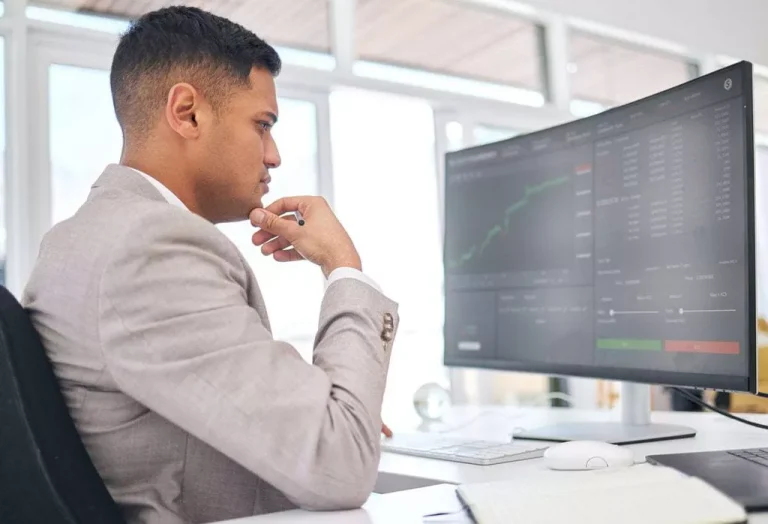Content
Forex brokers can also be categorized based on the types of trading accounts. These Prop firms typically recruit skilled traders and may provide them with training and strategies, and they profit by splitting the earnings of the trader they have recruited. Across all the different forex brokers, Pepperstone is one good example of ECN broker. To different types of forex brokers manage this inherent risk, Dealing Desk brokers employ various strategies. They may match orders internally among their client base to offset opposing positions, thus neutralizing their exposure. They also use sophisticated risk management systems to monitor and manage their overall exposure to market movements.
What is a forex broker and forex trading brokers?
- The A-book model within the NDD framework is beneficial for traders seeking fair and transparent trading conditions.
- It’s important to select a broker that offers leverage levels that align with your risk tolerance and trading strategies.
- To mitigate this risk, B-book brokers often use sophisticated risk management algorithms and may selectively hedge certain positions externally to balance their overall exposure (A-Book model).
- This eliminates all intermediaries as traders are interfaced with LPs, market makers, banks, and other market participants.
An STP forex broker is similar to an ECN broker, where all client positions are passed directly to the market through interbank exchange houses or liquidity providers such as banks. Except there are any cogent reasons, always choose a Tier 1 or https://www.xcritical.com/ Tier 2 regulated broker. These brokers offer greater transparency, user protection, and genuine brokerage services. No matter your level of trading experience or strategy, it is best to choose regulated forex brokers to avoid forex scams, spread manipulations, or problems with fund withdrawal. ECN brokers use advanced technology to connect forex traders directly to the forex market. The ECN server is like a hub where multiple market participants are connected.

Types of Forex Brokers Based on Regulation
Brokers may also offer leverage, which allows traders to control larger positions than their initial deposit. Since the market makers sell or buy directly from the traders, they have to factor in the risks they expose themselves. The spreads are usually wider than those of those who use the ECN and STP forex brokers. No dealing desk forex brokers Mining pool work with variable spreads and establish contracts with liquidity providers, mainly banks, through external technology platforms.
Micro Account Forex Broker (Cent, Micro, Mini)
Linkage takes place via the FIX (Financial Information eXchange) protocol. Basically, the broker provides the retail traders with the prices from the liquidity providers and then routes all the retail traders’ orders to the liquidity providers for execution. CTrader is offered by few forex brokers when compared to the MetaTrader platforms. When it comes to forex trading and being successful at it, trading platforms have just a little role to play. If you are a regular forex trader without complex strategies, then a Tier 1 or Tier 2 regulated STP broker is recommended for you. You do not need to worry about counterparty risk, high trading fees, or commissions.

Top 10 Chart Patterns Every Trader Should Know
This is because the prices traders get access to are essentially the raw prices from the liquidity providers, without any additional markups. The brokers’ revenue comes from the commission on each trade, rather than from widening the spread. This can be beneficial for traders, as it often results in lower overall trading costs, particularly for high-volume traders. A No-Dealing Desk (NDD) Forex broker is a type of broker that provides a direct bridge to the interbank market without passing through a dealing desk. This model is intrinsically linked to the A-book approach in Forex trading. An important aspect of this model is the broker’s revenue generation mechanism.
Dealing Desk (DD) Brokers, commonly called “Market Makers,” play a pivotal role in the foreign exchange market. Their primary function is to provide liquidity by offering buy and sell prices for a currency pair, thereby ‘making the market.’ In essence, they create an internal market for their clients. This article delves deep into Dealing Desk Brokers’ operations, advantages, and criticisms.
Most of the time, the broker offers some accounts with true ECN conditions and others with a mix between ECN and market-making. Again, don’t take away from this section that all market makers act like this. The thing to consider is that market makers have a competitive advantage over retail traders, and there’s a thin line between ethics and professional representation. That’s the most illiquid time of the day, at the close of the daily candlestick. With poor liquidity, brokers can widen the spreads extensively, forcing out weak retail traders.
No Dealing Desk (NDD) brokers represent a significant shift from the traditional brokerage model. Unlike Dealing Desk (DD) brokers, NDD brokers do not create an internal market for their clients. Instead, they act as intermediaries, connecting traders with the broader forex interbank market. Here’s a deep dive into the operations, types, and characteristics of NDD brokers.

This means that when you buy a currency pair, the broker may sell that pair from their own inventory. An NDD forex broker typically handles transactions and orders for clients, executes trades, and watches the markets. They either charge a commission or widen bid/offer spreads to make a small profit on each trade executed, sometimes both. Market makers or dealing desk brokers directly provide liquidity for their clients. In other words, they create a market for their clients internally by matching clients’ orders with opposite orders from other clients or taking the other side of the trades themselves. In such situations, clients’ losses are their gains, while clients’ gains are their losses.
This network aggregates prices from multiple sources, offering a diverse pool of liquidity and often more competitive spreads. By doing this, the ECN broker is able to offer a simulation of direct market access to their clients, with pricing reflecting the broader market conditions and liquidity. While there is a theoretical conflict of interest in the Dealing Desk (DD) or Market Maker broker model in Fx trading, the practical reality often presents a different picture.
An STP broker is able to benefit from having multiple liquidity providers as more providers in the system means that there are greater fills for the client. Majority of STP brokers usually use banks as their liquidity providers. As a trader, it is best to select a broker with the most variable spreads. Choosing the right Forex broker is essential for success in the Forex market.
The ideal broker informs the trader about upcoming changes that may affect trading conditions, keeping the trader on the right path by offering incentives to trade without pushing the sale process. Small amounts deposited into a trading account also suggest the trader does this mostly as a hobby. There’s no impact on the trader’s lifestyle if the account blows up, so the broker decides to run the market-making business. A trader’s trading experience tells the broker about the market knowledge they have. Some brokers go even further and ask how many trades, roughly, the trader expects to take each day, week, or month.
They operate on centralized exchanges and provide platforms that allow investors to execute trades. Stock brokers typically charge commissions or fees for facilitating trades, and they may also provide research, investment advice, and portfolio management services. These types of forex brokers offer services primarily geared toward experienced traders with substantial amounts of capital able to match the high trading volumes typical of the interbank market.
A well-established broker with positive feedback and a strong track record is likely to provide a more secure and reliable trading experience. Conversely, a broker with numerous negative reviews or complaints may not be the best choice for your trading needs. Before committing to a broker, it is a good idea to test their customer service by reaching out with questions or concerns. Prompt and professional service is a sign that the broker values its clients and is reliable. Alex Temiz is a successful day trader and co-founder of My Investing Club (MIC).
Forex traders know that a fixed forex spread is beneficial, especially for scalpers and trend traders. They assist forex traders in planning their trades and budgeting for them. Regulated forex brokers operate under the oversight of recognized financial authorities such as ASIC oder FCA, adhering to strict standards that protect traders. In the opposite, unregulated brokers lack this oversight, which can expose traders to higher risks like fraud or financial instability. A dealing desk broker is a type of forex broker that acts as a market maker, facilitating trades by taking the opposite side of clients’ transactions.